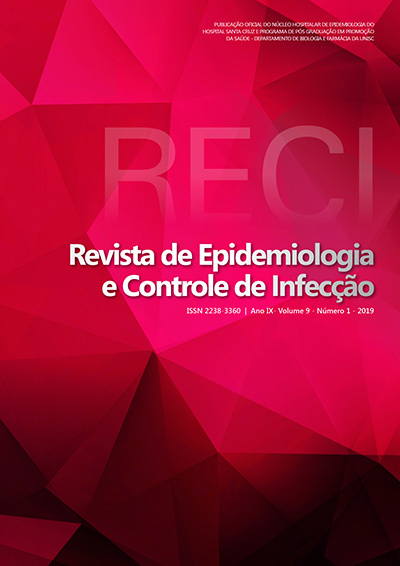An integrative review of the methods used for cortisol assessment in clinical studies investigating the association between Blood Pressure and Cortisol Hormone
DOI:
https://doi.org/10.17058/reci.v9i1.12275Abstract
Background and Objectives: Systemic Arterial Hypertension (SAH) is a health condition that represents a global public health problem and its relation with the hormone cortisol is not yet widely understood. Thus, the present study aimed to identify in the literature the association among the SAH, the hormone cortisol and the clinical methods used to evaluate this relationship. Methods: An integrative literature review was carried out, based on 17 scientific articles published between 2013 and 2017 identified in the databases EMBASE and PubMed, with the descriptors hypertension and hydrocortisone in English language. Results: There was an association of SAH with increased cortisol at the age of 62 years, increased sodium in the diet, not eating breakfast, increased caffeine consumption, metabolic syndrome, obesity, excess catecholamine’s, some types of hormones, and biomarkers. The most commonly used clinical methods for this relationship were association tests, performed with renal and / or cardiac function, metabolic syndrome, stress, chronic diseases associated with the evaluation of laboratory tests. Conclusion: The results indicated an association between cortisol and SAH with advancing age and lifestyle. Moreover, the association tests were the most used methods. KEYWORDS: Hypertension. Cortisol. Hydrocortisone. Clinical analysis. Health care.Downloads
Downloads
Published
How to Cite
Issue
Section
License
The author must state that the paper is original (has not been published previously), not infringing any copyright or other ownership right involving third parties. Once the paper is submitted, the Journal reserves the right to make normative changes, such as spelling and grammar, in order to maintain the language standard, but respecting the author’s style. The published papers become ownership of RECI, considering that all the opinions expressed by the authors are their responsibility. Because we are an open access journal, we allow free use of articles in educational and scientific applications provided the source is cited under the Creative Commons CC-BY license.


